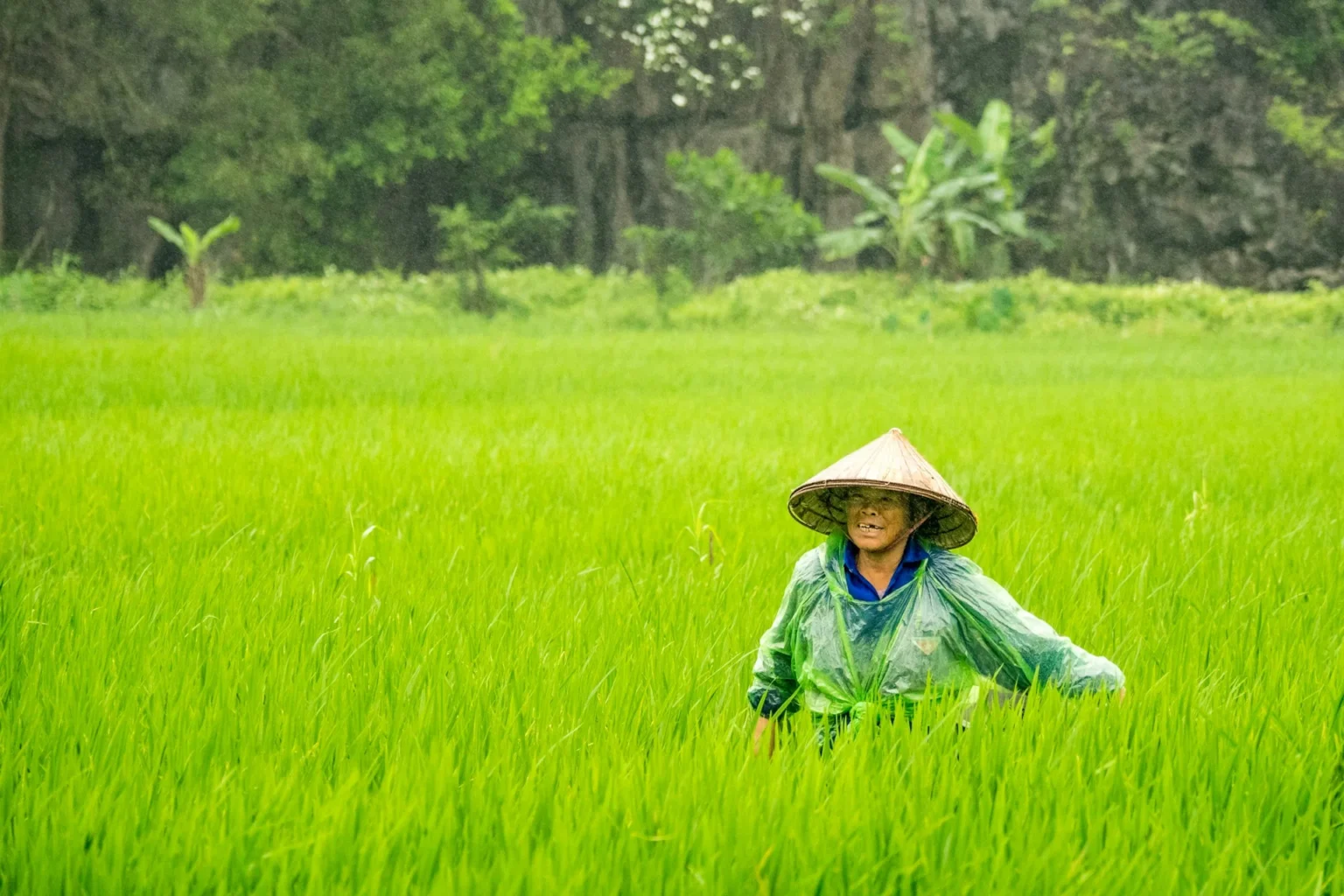Vietnam- Bayer Vietnam has partnered with the National Agricultural Extension Center (NAEC) under the Ministry of Agriculture and Rural Development (MARD) to launch the ForwardFarming initiative. This collaboration marks the opening of Southeast Asia’s first ForwardFarm in Thới Lai District, Cần Thơ City, aiming to propel sustainable agricultural practices in Việt Nam. The initiative is part of a public-private partnership (PPP) model that aligns with Việt Nam’s goal to become a global agricultural leader by 2030.
The ForwardFarm in Cần Thơ stems from a memorandum of understanding signed between Bayer and the NAEC in August 2022. This partnership focuses on transforming rice cultivation by enhancing productivity and quality for export, while promoting sustainable agriculture practices that also address climate change. Key partners in this PPP program include Kim Hồng Machine Enterprise Co Ltd and Bình Điền Fertiliser JSC, with Bayer playing a leading role as the private sector partner.
Over the next three years, the initiative will pilot a smart, low-emission rice cultivation model in Thới Lai District. This model aims to benefit independent farmers through enhanced cooperation between public and private sectors. Goals include boosting yields, optimizing resource use, and protecting the environment. Bayer and NAEC have already conducted training sessions for 2,000 farmers and 50 agricultural extension officers, focusing on sustainable farming methods and the safe use of crop protection products.
The Mekong Delta, home to the new ForwardFarm, is historically a crucial rice-growing region but faces severe climate challenges such as salinity intrusion, unpredictable rainfall, and flooding. The ForwardFarm initiative seeks to tackle these issues by fostering collaboration among farmers, technology partners, scientists, academics, and value chain partners, encouraging the exchange of agricultural knowledge and the adoption of modern, climate-smart farming practices.
Tomas Zaborowski, Bayer’s global head of sustainability excellence, highlighted the need for a comprehensive approach to sustainable agriculture that balances economic, ecological, and social considerations. With a network of 26 farms in 13 countries, Bayer ForwardFarming now includes Việt Nam as its 14th participant, providing a platform for dialogue and knowledge sharing to offer holistic solutions to farmers.
Le Quoc Thanh, director general of the NAEC, underscored the significance of the PPP model in advancing sustainable agriculture. He noted that Bayer’s initiative, through collaborative programs and training, aims to boost farmers’ capacity to produce sustainable rice, reduce emissions, and adapt to climate change. The program supports Việt Nam’s vision of sustainably developing one million hectares of high-quality rice for export and promoting green growth in the Mekong Delta.
The ForwardFarming model has shown impressive results, including reducing seed sowing quantities by 2.5 to 3 times, cutting water usage by nearly 50%, and decreasing greenhouse gas emissions by 24.7%. Additionally, farmers have seen economic efficiency improve by 13.1 to 54.9% compared to traditional methods. These successes are due to integrating advanced production techniques, such as Bayer’s “Much More Rice” solution and Bình Điền’s specialized fertilizers, along with support from both local and international partners.
The initiative aims to reach over 100,000 farmers through the national agricultural extension network, leveraging both in-person and online training platforms. This wide reach is vital for spreading sustainable farming practices and achieving long-term sustainability goals. Ultimately, the ForwardFarming initiative not only enhances farmer incomes and ensures food security but also conserves natural resources and the environment, paving the way for a more sustainable future in Việt Nam’s agricultural sector.



